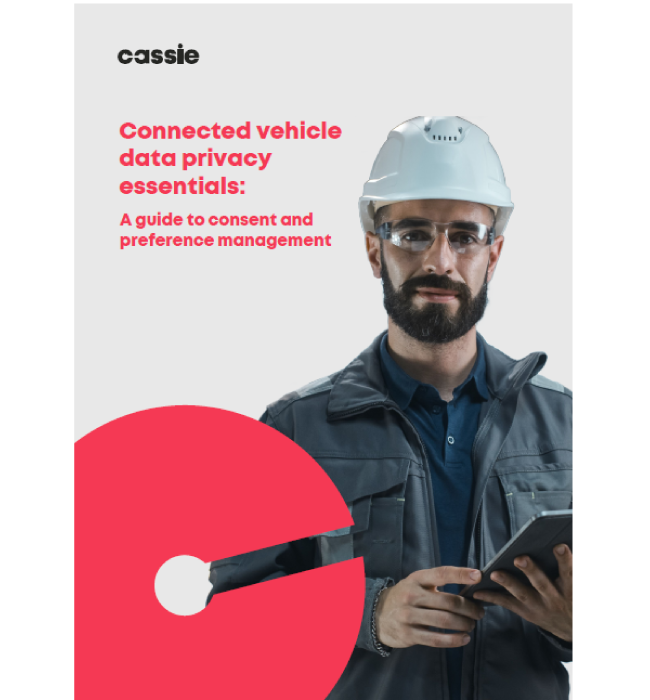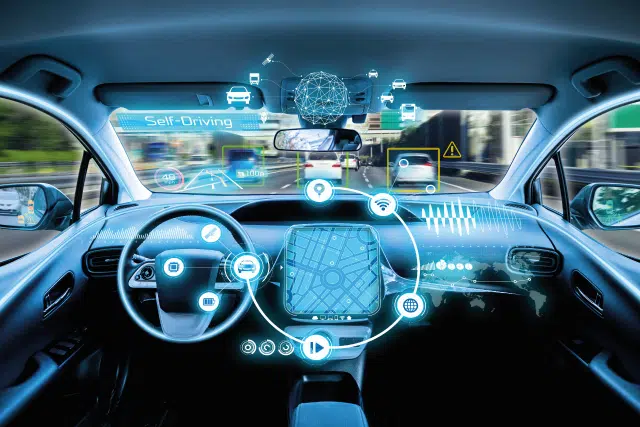California car privacy bill aims to protect abuse survivors
Posted: May 1, 2024
A new California Assembly bill, AB 3139, aims to stop domestic abuse perpetrators from tracking their victims via connected vehicle technology.
To achieve this aim, the bill would require connected vehicle manufacturers to help domestic abuse survivors submit “vehicle separation requests” and to comply with such requests by cutting off domestic abuse perpetrators’ access to their remote vehicle technology.
AB 3139 is one of several legislative efforts to improve privacy in connected cars. Here’s an overview of the bill and what it would mean for vehicle manufacturers.
Reasons for the bill
AB 3139’s sponsor, Assembly Member Akilah Weber, cites the following reasons for introducing new vehicle privacy measures to protect domestic abuse survivors:
- Domestic violence, dating violence, stalking, sexual assault, human trafficking, and related crimes are life-threatening issues that have lasting and harmful effects.
- Abuse survivors often lack meaningful support when trying to escape an abuser.
- Abuse perpetrators increasingly use technology to control, monitor, and abuse their victims, including the connectivity and location data capabilities built into connected vehicles.
The bill would enable abuse survivors to cut off their abusers’ access to connected vehicle technology. This move should help stop abusers from tracking survivors’ locations and other vehicle data. However, it would also require vehicle manufacturers to cut off paying users’ access to their services.
The ‘vehicle separation request’
The bill requires a vehicle manufacturer to set up a “secure remote means” for abuse survivors to submit a “vehicle separation request”. This would mean providing a “prominent link” on the vehicle manufacturer’s website reading “CALIFORNIA SURVIVOR DOMESTIC VIOLENCE ASSISTANCE” in bold capital letters.
The link must lead to a form enabling a survivor to submit a vehicle separation request by submitting the following information:
- A statement signed under penalty of perjury affirming that the perpetrator has committed (or has allegedly committed) an act covered by certain domestic abuse laws against the survivor or someone in the survivor’s care.
- At least one of the following types of documentation:
- An affidavit signed by a relevant professional, such as a licensed health care provider, a social worker, or a court employee
- A police report
- A statement provided by the police to a judge
- A charging document
- A protective or restraining order
- Any other relevant official record
A completed vehicle separation request must include either the statement or the official documentation listed above (not both).
Responding to a vehicle separation request
Within two days of receiving a valid vehicle separation request, a manufacturer would be required to separate the perpetrator’s access to the remote vehicle technology, free of charge and regardless of whether the perpetrator consents.
If disconnecting access by the perpetrator alone is technically unfeasible, the manufacturer would be required to disconnect the remote technology from the vehicle altogether.
If a manufacturer cannot “operationally or technically effectuate a vehicle separation request,” it would need to inform the survivor or their representative directly.
A vehicle manufacturer that cannot fulfill a request would also have to “modify, or assist the survivor in modifying, the default settings of the remote vehicle technology” to “prevent the perpetrator from obtaining information about the survivor.”
Should AB 3139 become law, manufacturers failing to comply with the rules would face paying a civil penalty of between $50,000 and $100,000 per violation, the claimant’s legal costs, and any actual damages incurred by the claimant.

Read our Connected vehicle data privacy essentials guide
This comprehensive guide is your roadmap to navigating the intricate world of data privacy in the connected vehicle data ecosystem.
In this guide, you will:
- Discover how Connected Vehicle Data is used
- Learn about Connected Vehicle Data Privacy Laws
- Explore best practices for Data Privacy
- Ensure Regulatory Compliance
- Implement Consent and Preference Management solutions

